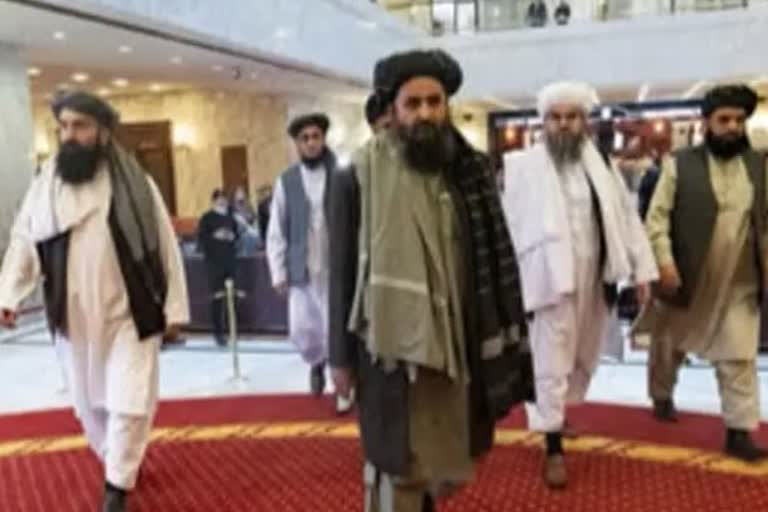Kabul (Afghanistan) : The Taliban stormed back to power a year ago as US-led forces withdrew from the country, two decades after first ousting the hardline Islamist regime. Here are the key events of the past 12 months. As the United States and its allies begin withdrawing their forces from Afghanistan, the Taliban launch a final offensive to win back control of the country they ran between 1996 and 2001. In August, the Islamists accelerate their campaign, seizing a string of cities in a lightning 10-day sweep across the country that culminates with the fall of the capital, Kabul, on August 15, 2021.
President Ashraf Ghani flees to Abu Dhabi, admitting the "Taliban have won". Thousands of terrified Afghans and foreigners rush to Kabul airport in a frenzied scramble to board the last flights out of the country. Washington freezes some $7 billion in Afghan reserves in US banks, and donors suspend or dramatically reduce their aid to the country.
Also Read-In Afghanistan murderers hunt female judges who convicted them in pre-Taliban regime
US completes chaotic exit: Chaos reigns at the airport, where several people are crushed to death while trying to get onto the tarmac as the United States and its allies hastily evacuate their citizens and Afghan nationals who aided the ousted government.
On August 26, a suicide bomb rips through the crowds, killing more than 100 people, including 13 US service members. The Islamic State group's chapter in Afghanistan and Pakistan, rivals of the Taliban, claims responsibility. Four days later, the Taliban celebrate as the last American forces and their allies leave on August 30.
Religious police return : Despite the Taliban's claim to have ended their repressive ways, the signs are inauspicious. A new interim government is unveiled in September, with hardliners in all key posts and no women. The Taliban also bring back the feared Ministry for the Promotion of Virtue and the Prevention of Vice, enforcing the group's austere interpretation of Islam. The actions spark protests in Kabul and Herat, where two people are shot dead.
IS attacks mosques : In October, blasts tear through a Shiite mosque in Kandahar during Friday prayers, killing 60 people in the deadliest attack since the departure of US troops.
The attack claimed by Afghanistan's IS chapter comes a week after a suicide attack at another Shiite mosque in the northern city of Kunduz claimed by the jihadists in which dozens were killed.
Oslo hosts talks with Taliban: Deprived of aid, Afghanistan is plunged into a deep economic and humanitarian crisis. Norway invites the Taliban to talks with members of Afghanistan's civil society and Western diplomats in Oslo. An all-male Taliban delegation travels to the meeting, during which officials from the United States and Europe explore the possibility of providing aid directly to the Afghan people.
Girls barred from school : In March, the Taliban block secondary school girls from returning to class, hours after schools reopen. The Islamists also instruct that government employees must grow beards.
Women ordered to cover up : In May, women and girls are ordered to wear the hijab and cover their faces when in public, with the religious police saying they prefer women to stay at home. Women TV presenters are among those targeted by the measure, sparking an international outcry. Women are also banned from making long-distance journeys alone and can only visit public parks in the capital on days when men are not allowed.
Massive earthquake : More than 1,000 people are killed and thousands left homeless when an earthquake strikes Afghanistan's border with Pakistan on June 22. The disaster poses a huge logistical challenge for the Taliban government, which has not been formally recognised by any country. International aid agencies come to the rescue, sending food, tents and medical supplies.
Al-Qaeda chief killed in US drone strike : On August 2, President Joe Biden announces the United States has killed Al-Qaeda chief Ayman al-Zawahiri, the suspected mastermind of the September 11, 2001 attacks, in a drone strike on his Kabul hideout. The Taliban condemn the strike but do not confirm Zawahiri's death. (AFP)



